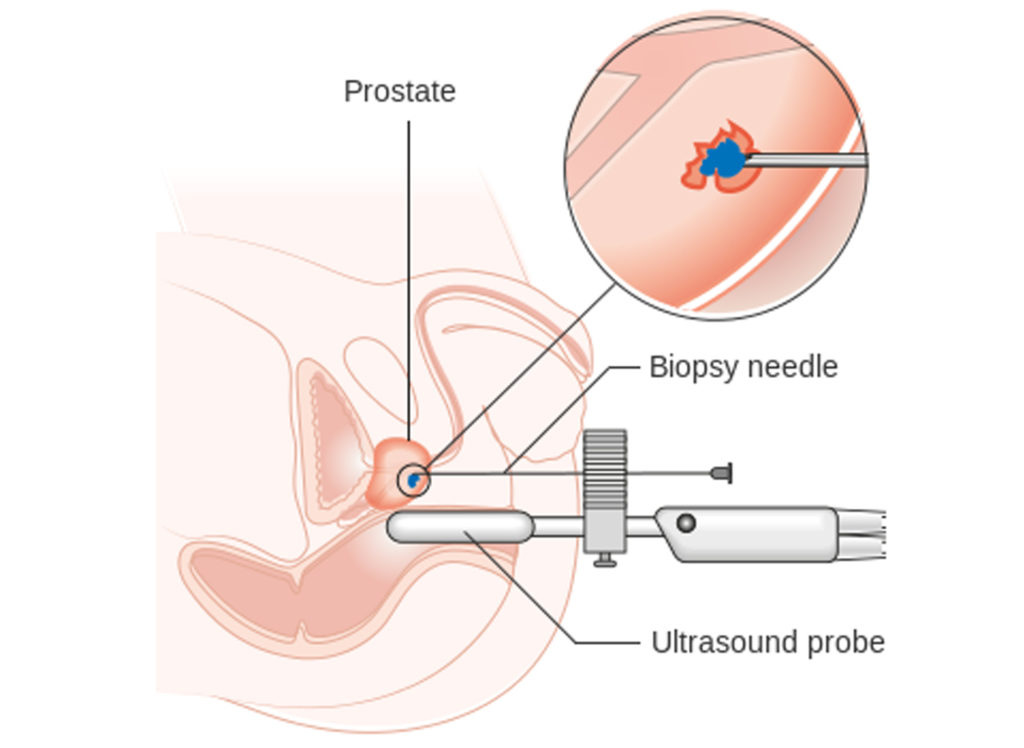Perineal
The procedure involves the use of a needle in the perineal region to collect tiny bits of your prostate tissue. It is inserted into the skin between the scrotum and the anus, which is also called the perineum. This route is the standard of care which is done under the real-time guidance of an ultrasound probe resting in the rectum. This enables the urologist or an imaging expert to take a biopsy from all the suspicious areas and around the prostate in a thorough, systemized manner.
Transrectal
Here, the needle is passed through the rectal wall with or without the assistance of an ultrasound probe. The ultrasound enables the professional to see the prostate images. Prostate images allow the professional to inject medicine around the prostate to numb you. The rectal route has more chances of you developing post-biopsy infection which at times could be severe.
Next, they insert a biopsy needle and take at least 10 or as many as 30 samples to send to the lab for further examination.
Anesthesia: Urologists may utilize different practices, but a common goal is to make the procedure comfortable and painless for you. It can be done with just local anesthesia or general anesthesia or intravenous sedation.
Transurethral
This route for biopsy is not preferred, as the cancer is in the peripheral zone which is far away from the urethra. But this route is common to treat benign enlargement of the prostate causing urinary obstruction




